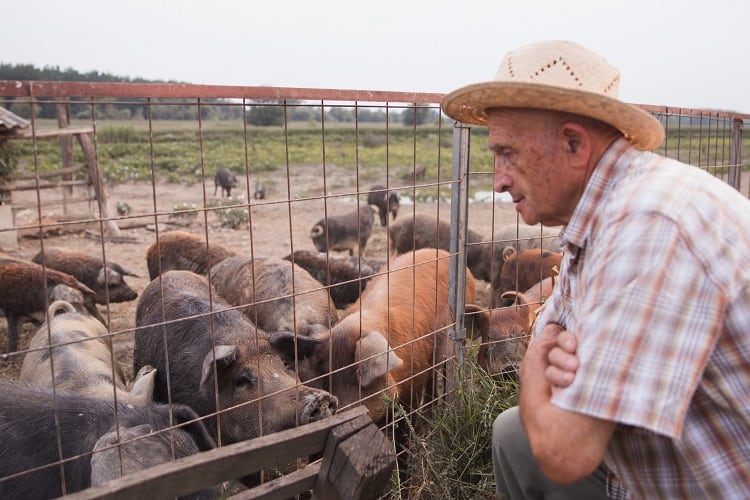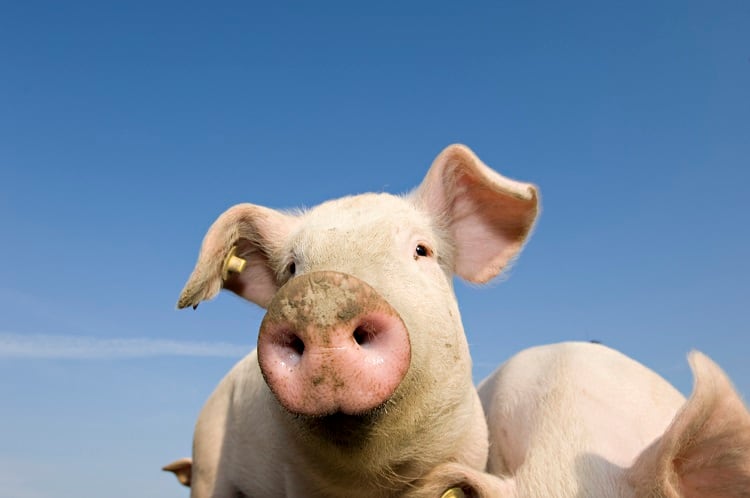In the eyes of the consumer, it’s no longer enough for meat producers to focus on quality, price, and health and safety. Now shoppers want the bar raised in animal welfare.
Yet as Miguel Angel Higuera, chairman of the Animal Health and Welfare working party at Copa-Copega, outlined at a recent European Food Forum (EFF) event, such a demand comes with significant challenges for farmers.
A question of communication
Higuera comes at the issue from a farmer’s perspective. Alongside his role at Europe’s largest farming body Copa-Copega, Higuera is also director of Spain’s National Association of Swine Livestock Producers (ANPROGAPOR).
“For the farmer, the objective has always been to satisfy consumers’ demands,” he explained. Historically, consumers have demanded good quality, healthy products. “These aspects have been worked on by farmers for years, to try to satisfy the demands of the consumer.”
However, Higuera suggested that the consumer is no longer the farmer’s ‘only target’. Today, the farmer also has to respond to society’s demands.
And society has real demands. Looking to the Commission’s Farm to Fork strategy, for example, farmers are being asked to reduce the use and risk of pesticides by 50%, cut the use of fertilisers by 20%, work with 50% less antimicrobials for farmed animals and aquaculture on the market, and increase the size of the EU’s agricultural land dedicated to organic farming to at least 25%. All by 2030.
One of the key challenges in responding to society’s demands, explained Higuera, lies in communication.
Purchasing a farmer’s product opens a clear line of communication between consumer and producer. Increasingly, communication between society and farmer is conducted by politicians and, lately, changes to legislation, the ANPROGAPOR director elaborated.
“Therefore, the form of communication between farmers and society has changed, and it’s no longer enough to be focusing on the quality, price, health & safety. Now we have to apply additional attributes for our products, like animal health, reductions in the use of antibiotics, animal welfare, and environmental protection.”
Are consumers willing to pay more?
Another key challenge at the front of farmers’ minds is price. The more farmers invest in animal welfare and environmental protection, the higher their costs.
This makes the economic viability of meat more difficult, explained Higuera. In response to higher input costs that respond to societal demands, farmers are required to pass at least some of the cost onto the consumer.
“At this point, perhaps the biggest question that we have…is if the consumer is willing to pay more for products with these additional attributes?”
Higuera continued: “If the consumer wants to pay more for these types of products…then everything is going to work well. But if the consumer doesn’t want to pay more…we have serious problems.”
Other concerns facing farmers, particularly if mandatory animal welfare and other legislation is enforced, is how farmers will differentiate their high quality products from others.
“We believe that these [new attributes] have to be voluntary, because it is the only way the farmers can make any differences [in the eyes of] the consumer, in the quality of…production.”
Higuera also stressed the importance of ensuring there is capacity for farmers to produce products for export to third countries – ones that do not comply with European Union regulation, and that might have lower animal welfare standards, for example. “This is very worrying for us.”
Calling for transparency and traceability
What is clear for farmers is that consumers are aware of the difference between products produced to higher standards, and conventional alternatives. For this to happen, Higuera is calling for full traceability from farm to fork.
“You have to be sure the consumer knows exactly what is happening [along] the chain,” he stressed. “We must be very confident that everything is controlled.”
Farmers need a ‘robust’ traceability system, to ensure consumers are receiving the kinds of products they are demanding. “Information [must be] clear, so for us, a good consumer [is one] that [makes] the correct [purchasing] decision.”
For this reason, farmers are asking for clear and simple food labels, for example a voluntary label that depicts the animal welfare standard used to produce the meat product in question.
The label must differentiate between conventional and higher quality products, he continued. If not, what is to stop the consumer from selecting a conventionally produced meat product?
There is a risk that consumers don’t want these products, and aren’t willing to pay more. “This is something that is very worrying for us,” said Higuera.
But at the same time, the ANPROGAPOR director suggested it’s likely something has to change. “Right now in the EU, we are losing the consumer, we are losing the consumption of meat, so these kinds of new things, like animal welfare, and environmental production, maybe is a must…”




